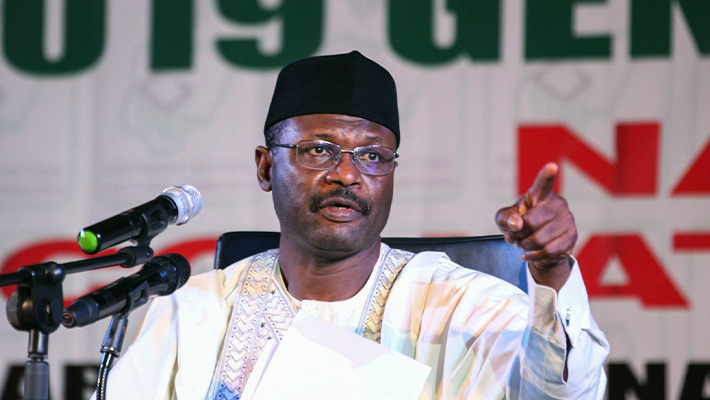POLITICS
INEC accredits 229 groups bringing 146,913 observers to 2023 elections

INEC says it has accredited 229 groups bringing 146,913 observers to the 2023 general elections.
Addressing the observer groups on Tuesday in Abuja, INEC Chairman, Prof. Mahmood Yakubu, said they comprised 196 domestic and 33 international observer groups.
“For the 2023 general elections beginning on Saturday with the presidential and National Assembly elections, the Commission has accredited 196 national or domestic groups that are collectively deploying 144,800 observers.
“Similarly, the Commission accredited 33 international organisations deploying 2,113 observers.
“In all, 229 groups are deploying 146,913 observers for the 2023 general elections.
“This is the largest deployment of domestic and international observers in the history of elections in Nigeria,” Yakubu said.
The INEC Chairman said that reports and recommendations of observers and the knowledge gathered from study tours had helped the electoral commission to progressively improve on processes.
“The progressive improvement in our electoral democracy since 1999 draws in part from the reports of observers and study tours.
“That is why over the years, the Commission has sent open or specific invitations to national and international observers.
“The implication is that all accredited observers are guests of INEC,” Yakubu said.
He warned the accredited observers not to interfere with electoral process, but to keep to their roles of observing and later filing their reports.
“Today’s briefing for observers is in keeping with international good practice. I wish to remind observers that there is a Code of Conduct for election observation.
“You are by definition observers. Do not interfere with the process or show partisanship.
“International observers must be guided by the fact that the election is conducted by the Federal Republic of Nigeria whose sovereignty must be respected.
“I urge you all to keep to the rules,” he warned.
Responding, Regional Director, International Foundation for Electoral Systems (IFES), Africa, Ms Clara Cole noted that election observation played critical role and had contributed to improving elections.
“Election observation exposes irregularities and provides recommendations for improvements of elections.
“Hence, this briefing session provides an opportunity for INEC to lay emphasis on procedures, guidelines and innovations for observers who are participating in this process,” Cole said.
She advised all international and national observers to adhere to the guidelines in carrying out their roles during the elections.
The regional director pledged the continued support of IFES for INEC to continue to meet its mandate to conduct free, credible and successful elections.
In his presentation, the Chief Technical Adviser to INEC Chairman, Prof. Bolade Eyinla said only holders of Permanent Voter Cards accredited by Bimodal Voter Accreditation System would be allowed to vote at the elections.
Eyinla added that the use of incidence form to authenticate voters, who had challenges with accreditation, as obtained in previous elections, had long been buried.
He advised observers to study the guidelines and follow them in their observation and report filing.




 Davido's Net Worth & Lifestyle
Davido's Net Worth & Lifestyle 
